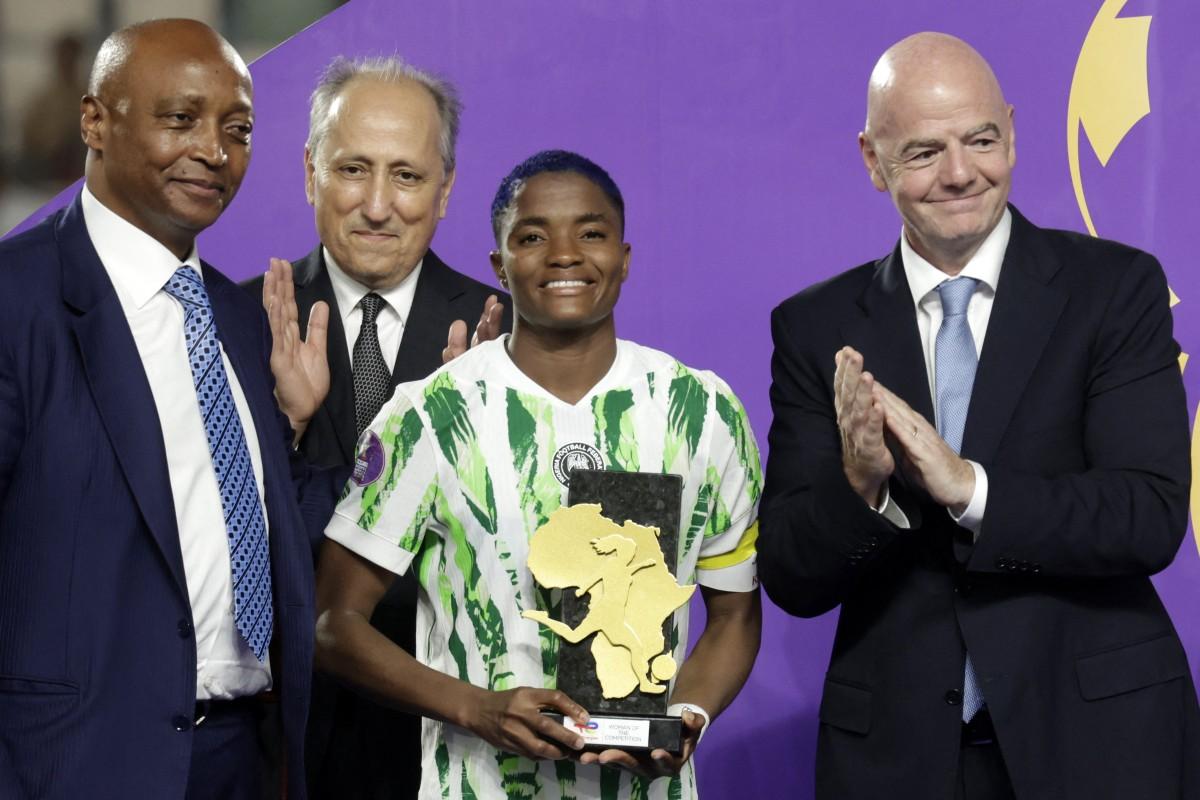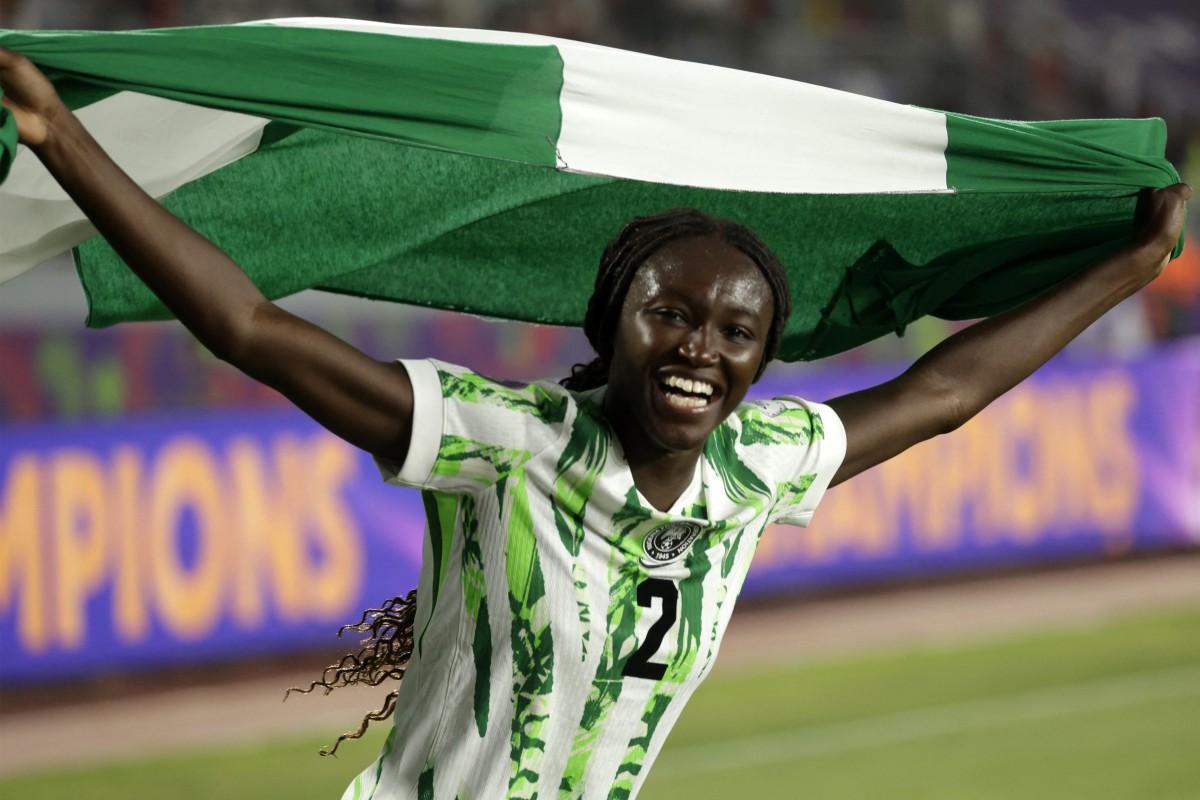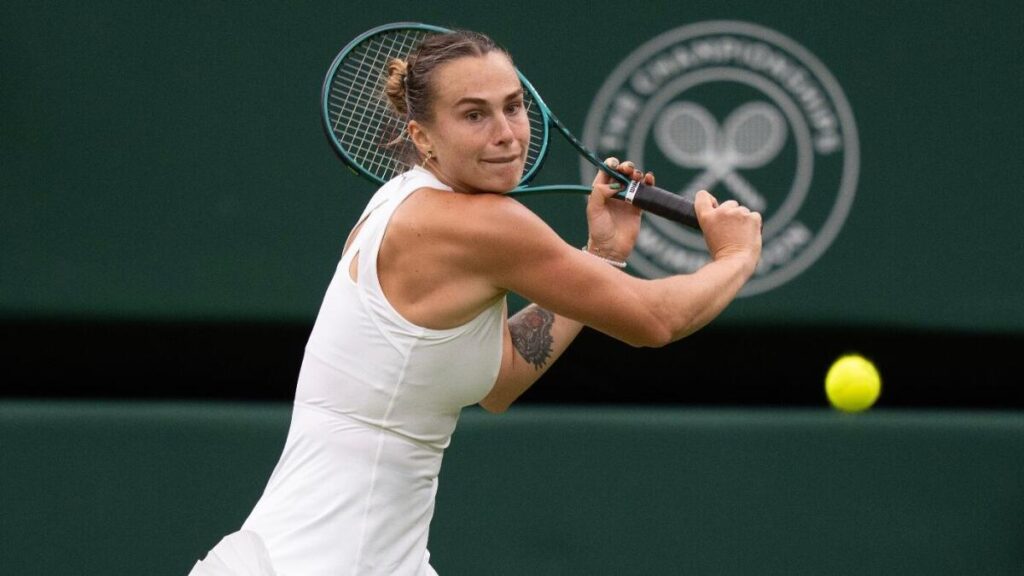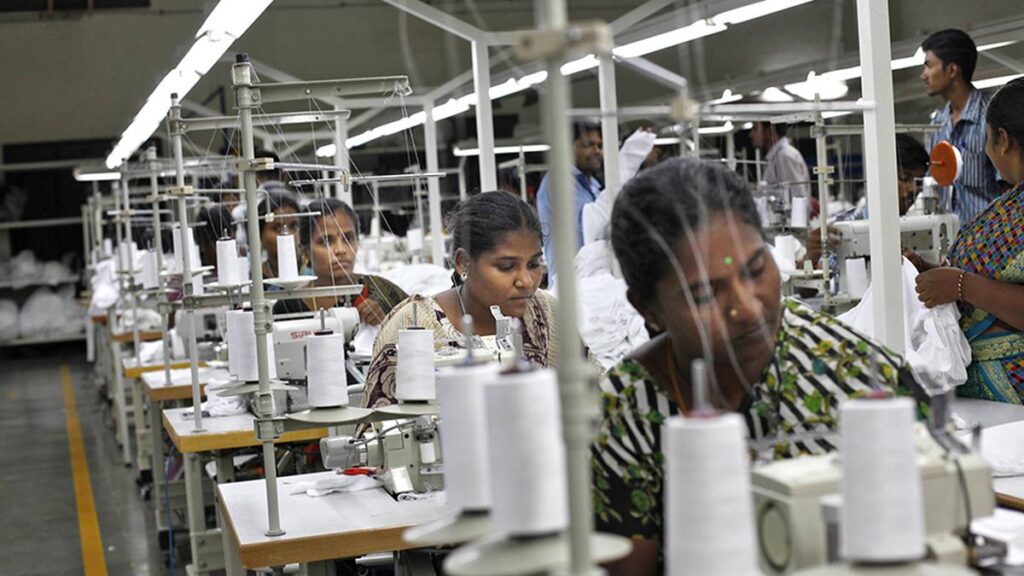Nigeria’s President Bola Tinubu on Monday hosted and splashed gifts on the triumphant national women’s football team, which overcame poor preparations and missing payments to win its record-extending 10th Women’s Africa Cup of Nations title.
The Super Falcons’ comeback 3-2 victory over host Morocco in Saturday’s thrilling final was applauded by Tinubu and many in Nigeria, a football-loving nation where passion and hard work often triumph over institutional challenges.

Nigeria’s forward #15 Rasheedat Ajibade poses with her Woman of the Tournament trophy on the podium after the Women’s Africa Cup of Nations final football at Prince Moulay Abdellah Stadium in Rabat on July 26, 2025.
| Photo Credit:
AFP
Nigeria’s forward #15 Rasheedat Ajibade poses with her Woman of the Tournament trophy on the podium after the Women’s Africa Cup of Nations final football at Prince Moulay Abdellah Stadium in Rabat on July 26, 2025.
| Photo Credit:
AFP
The continental success, analysts say, papers over the mismanagement of the women’s team by the country’s authorities. The success of the country had come in spite of the country.
“They have been able to dominate even though the Nigerian football authorities do not put as much funding, care, attention, and planning into the way the women’s national team is run,” Solace Chukwu, a Lagos-based football analyst, told The Associated Press.
The team had been owed match bonuses for years, once resulting in a training boycott in 2022. Even as it triumphed on the way to the finals in Morocco, the backlog of payments was only approved by the President days before Saturday’s final. The Falcons also could not hold competitive friendly matches, and their training kits were said not to have been available.
It is a common problem in Nigeria where sporting competitions are often dogged by issues of underfunding, corruption, and mismanagement that have led to high-profile scandals, resulting in athletes choosing to represent other countries in protest.
Women’s teams are affected the most, partly because of how women have always been viewed in Nigerian society, according to Oluwashina Okeleji, a sports analyst with a focus on Africa.

Nigeria’s midfielder #02 Rinsola Babajide celebrates with a national flag after winning the Women’s Africa Cup of Nations final football match against Morocco at Prince Moulay Abdellah Stadium in Rabat on July 26, 2025.
| Photo Credit:
AFP
Nigeria’s midfielder #02 Rinsola Babajide celebrates with a national flag after winning the Women’s Africa Cup of Nations final football match against Morocco at Prince Moulay Abdellah Stadium in Rabat on July 26, 2025.
| Photo Credit:
AFP
“The argument from the (Nigerian) federation is that the men bring more money than the women, but the truth is the women bring most prestige, honours, and titles to Nigeria,” Okeleji said.
A spokesperson for the Nigeria Football Federation, the country’s governing football body, declined to respond to the allegations.
The Nigerian women’s team has exercised a near-total dominance in African football, which is partly credited to a head start in the women’s game. Nigeria created the first football league for women in 1978, years before their counterparts on the continent.
However, the gains have not catapulted the team to similar achievements on the global stage in what analysts say is a failure of the authorities to capitalise on this early advantage.
“The men’s team is huge generally within the administration of Nigerian football as the cash cow,” Chukwu said.
The gifts now promised by the president, including money and property, have not convinced the fans.
“This one-time payment and apartment do not make any sense. For what? What they need is investment in the facilities, the staff, and payment. The lack of investment in women’s football is one of the reasons why it is not as high quality as the men’s,” Funmi Obasa, a football fan in Abuja who follows the women’s team, told AP.






